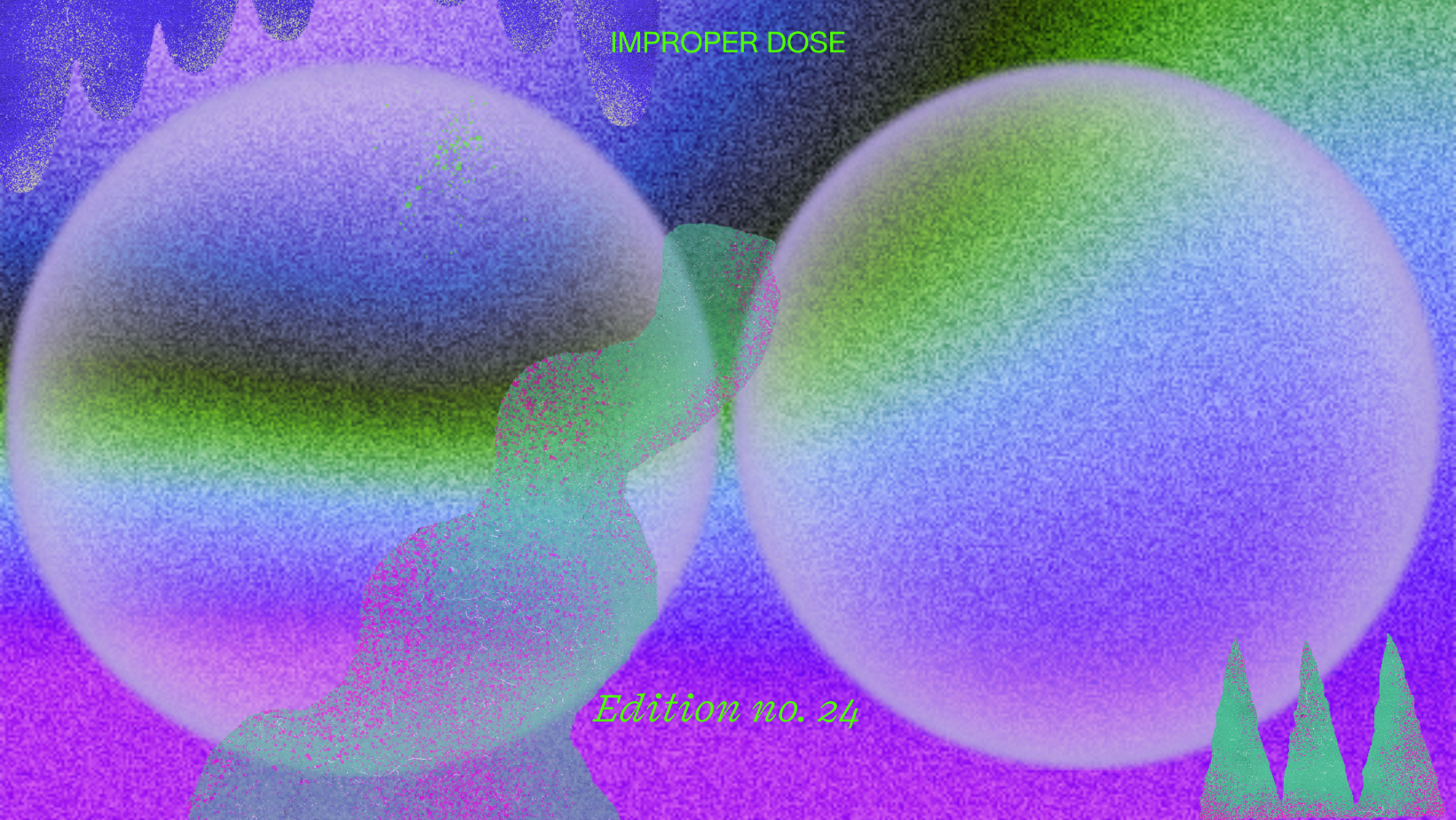IMPROPER DOSE NO. 24
-by Barbora Horská (Curator / Editor-in-chief of Improper Dose)
[...] And all of a sudden, I just became an activist.[1]
This time of the year brings up the topic of family and traditions (and family traditions) more than any other season. While each of us responds and deals with whatever comes up differently, these topics are multi-dimensional and influence us deeper than on the level of relationships with relatives or chosen companions. The way we understand traditions and the social group we feel the most affinity with affects what we notice, look for and consider essential and, therefore, the image toward which we shape society.
If our attitude remains rigid, we might be inconsiderate of anything outside of our inherited values. This proves dangerous, especially if what we carry from the past is focused more on appearance than sustenance. It is then easy to be oblivious to the needs of others and focus on protecting the status quo, like concentrating on the preservation of a building's facade over someone's ability to enter it—ableism on a level that no historical value can excuse. Demanding architectural adjustments to public spaces and institutions to make them more accessible doesn't speak of cultural ignorance. It is an opportunity to prove we have outgrown the ignorance of the historical era that has "failed at creating a physical world that serves all".[2]
With the climate crisis, capitalism and persevering lack of recognition of fundamental human rights worldwide, being an active participant in civic life is essential. We don't need to wait to be personally affected because human interconnectedness means the responsibility for the solution is already on all our backs, not as a burden but as a chance to lift each other up with ease. The sooner we recognize this, the easier it will become to carry forward.
For starters, read Elizabeth Spouse's interview with artist Philipp Muerling about his action in front of the Academy of Fine Arts Vienna, followed by the second reflection on the Migratory Anthropocene residency. This time, Miloš Vučićević intertwines a mosaic of personal stories with the political background that is shaping locals' metamorphosis into activists. Pedro del Real then brings you hardcore societal critique in the second installment of his new comic series Mr.Lemon, the acid poorly drawn lemon, while Ale Zapata has prepared you an apocalypse playlist as a dessert.
See you soon!
[1] Dragan in MIGRATORY ANTHROPOCENE. Reflections #2 by Miloš Vučićević
[2] Reni Eddo-Lodge on feminism’s need “to recognise that disabled people aren't inherently defective, but rather that non-disabled people have failed at creating a physical world that serves all.” in Why I’m No Longer Talking to White People About Race.

